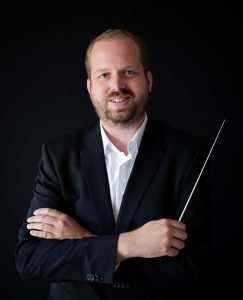Best practices: Choral Music and Technology — When a Pandemic Catalyzes Technical Innovations
initium
‘initium ; auditorium’ is a concert streaming service available on the Web and through a smartphone app. This service is designed to support artists who have not had opportunities to perform due to the COVID-19 pandemic.
With the concept of ‘Discover unknown, from here’, we aim to create a place where you performers and audiences can have a new intellectual experience. If an auditor would like to watch a concert, he/she has to buy a ticket. It’s also possible to buy a ‘passport’ to enjoy every concert for a certain amount of time.
Project leader Kaito Kikuchi, Japan
CouponConcerts
 CouponConcerts is a nice initiative that brings music back to people and offers musicians the opportunity to cover their running costs even in pandemic times. On the platform, anyone can book a musician or an ensemble for a concert, which, depending on the pandemic, can take place in the short or long term. The model works very well in larger cities, but there is also interest in smaller towns. According to the principle of “pay now, listen later”, the musicians receive the fee directly and then set an appointment with the organizers. Many musicians were quickly helped in a “concert-free” time in this way. But it’s not just good for the musicians! The online platform offers a wide audience the opportunity to bring their favorite music live into their own four walls. Be it for a house concert, a birthday, or even lessons, everyone will find what they are looking for here.
CouponConcerts is a nice initiative that brings music back to people and offers musicians the opportunity to cover their running costs even in pandemic times. On the platform, anyone can book a musician or an ensemble for a concert, which, depending on the pandemic, can take place in the short or long term. The model works very well in larger cities, but there is also interest in smaller towns. According to the principle of “pay now, listen later”, the musicians receive the fee directly and then set an appointment with the organizers. Many musicians were quickly helped in a “concert-free” time in this way. But it’s not just good for the musicians! The online platform offers a wide audience the opportunity to bring their favorite music live into their own four walls. Be it for a house concert, a birthday, or even lessons, everyone will find what they are looking for here.
Julia Ungureanu, violinist, Germany
Jamulus
Jamulus is the software solution that gave hope to the choral world that was stopped in the midst of the pandemic. And indeed – once you had overcome small technical hurdles, you could finally experience a “choir feeling” again. With a stable, wired Internet connection, very low delays can be achieved, which make it possible to sing almost simultaneously. All you have to do is adjust the volume of the individual singers using the integrated digital mixer until a balanced choir sound is created. Rehearsal work, which in most video conference systems only works in one direction, is now again significantly more effective, more constructive and even allows agogic music-making with Jamulus. For ensembles whose singers have to travel from different regions, this type of rehearsal can be a sensible alternative even after the pandemic.
Tristan Meister, conductor, Germany
Couponconcerts and Jamulus texts translated by Clayton Parr, USA
Technology and Orchestras in the Pandemic World
 For the Medellín Philharmonic Orchestra (Colombia), the pandemic was an opportunity to connect with new audiences in different ways. We consciously decided to change not only the concert transmission (from a live concert to the exact same concert transmitted through a virtual platform) but also to use products designed for the digital world in order to reach new audience segments. One of the interesting adaptations we made was to use chamber music (the only ensemble allowed by public health regulations) to raise awareness for the conservation of tangible and intangible heritage, becoming allies with an architect who did the reconstruction and digital modelling of theatres that disappeared in the city at the beginning of the 20th century and where shows such as the New York Philharmonic and the American Ballet, among others, were held. This is how we were able to “transport ourselves to the past” and perform concerts in places that none of our musicians were able to visit because they were demolished in 1940. The result was a series of concerts with different repertoires that generated conversations about all the places that were lost to industrialisation in the city and that we long for today. It was a mix of heritage, conservation, music and technology for reconstruction and 3D modelling that allowed us to continue working, expand our audience and be innovative in a sector that had been doing the same thing for 200 years. You can see some of these concerts here.
For the Medellín Philharmonic Orchestra (Colombia), the pandemic was an opportunity to connect with new audiences in different ways. We consciously decided to change not only the concert transmission (from a live concert to the exact same concert transmitted through a virtual platform) but also to use products designed for the digital world in order to reach new audience segments. One of the interesting adaptations we made was to use chamber music (the only ensemble allowed by public health regulations) to raise awareness for the conservation of tangible and intangible heritage, becoming allies with an architect who did the reconstruction and digital modelling of theatres that disappeared in the city at the beginning of the 20th century and where shows such as the New York Philharmonic and the American Ballet, among others, were held. This is how we were able to “transport ourselves to the past” and perform concerts in places that none of our musicians were able to visit because they were demolished in 1940. The result was a series of concerts with different repertoires that generated conversations about all the places that were lost to industrialisation in the city and that we long for today. It was a mix of heritage, conservation, music and technology for reconstruction and 3D modelling that allowed us to continue working, expand our audience and be innovative in a sector that had been doing the same thing for 200 years. You can see some of these concerts here.
María Catalina Prieto, Executive Director, Colombia
Translated by Rebeka Angstmann, UK
Online teaching
 Online teaching seemed to be a strange format at first. However, with perseverance, we were able to move ahead. A microphone, a keyboard, a computer and headphones were the minimum requirements, and Zoom was the platform adopted. The students from the Hochschule für Musik Trossingen (Germany) had the benefit of fully equipped technology rooms provided by the school. Most of my private students had access to equipment and a sound knowledge of technology. The fundamental barrier here was the delay, which disrupted the togetherness of the lesson — accompanying or singing together was impossible, so the students had to be very well prepared beforehand. Experienced students had a clear advantage, while less independent students easily lost motivation.
Online teaching seemed to be a strange format at first. However, with perseverance, we were able to move ahead. A microphone, a keyboard, a computer and headphones were the minimum requirements, and Zoom was the platform adopted. The students from the Hochschule für Musik Trossingen (Germany) had the benefit of fully equipped technology rooms provided by the school. Most of my private students had access to equipment and a sound knowledge of technology. The fundamental barrier here was the delay, which disrupted the togetherness of the lesson — accompanying or singing together was impossible, so the students had to be very well prepared beforehand. Experienced students had a clear advantage, while less independent students easily lost motivation.
Creativity, flexibility, recordings, and accompaniments were essential, but the format of vocal improvisation proved to be a successful adaptation to the realities of online instruction – we looked for Internet-related inspiration, and even delay stimulated our creativity.
Online lessons connected a world in need of connection while shedding light on the evident social and economic gaps between people. Less fortunate students were at a clear disadvantage. My hope is for a future in which governments can provide the materials to allow every student to learn equitably, both in school and at home.
Andrea Conangla, Portugal, Vocal improvisation lecturer at Hochschule für Musik Trossingen (Germany)
Edited by Richard Kutner, USA

